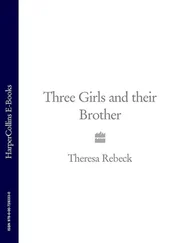Leopold Wagner - Names - and Their Meaning
Здесь есть возможность читать онлайн «Leopold Wagner - Names - and Their Meaning» — ознакомительный отрывок электронной книги совершенно бесплатно, а после прочтения отрывка купить полную версию. В некоторых случаях можно слушать аудио, скачать через торрент в формате fb2 и присутствует краткое содержание. Жанр: Эзотерика, foreign_religion, foreign_antique, на английском языке. Описание произведения, (предисловие) а так же отзывы посетителей доступны на портале библиотеки ЛибКат.
- Название:Names: and Their Meaning
- Автор:
- Жанр:
- Год:неизвестен
- ISBN:нет данных
- Рейтинг книги:3 / 5. Голосов: 1
-
Избранное:Добавить в избранное
- Отзывы:
-
Ваша оценка:
- 60
- 1
- 2
- 3
- 4
- 5
Names: and Their Meaning: краткое содержание, описание и аннотация
Предлагаем к чтению аннотацию, описание, краткое содержание или предисловие (зависит от того, что написал сам автор книги «Names: and Their Meaning»). Если вы не нашли необходимую информацию о книге — напишите в комментариях, мы постараемся отыскать её.
Names: and Their Meaning — читать онлайн ознакомительный отрывок
Ниже представлен текст книги, разбитый по страницам. Система сохранения места последней прочитанной страницы, позволяет с удобством читать онлайн бесплатно книгу «Names: and Their Meaning», без необходимости каждый раз заново искать на чём Вы остановились. Поставьте закладку, и сможете в любой момент перейти на страницу, на которой закончили чтение.
Интервал:
Закладка:
Leopold Wagner
Names: and Their Meaning / A Book for the Curious
INTRODUCTION
Not the least difficult matter in connection with the present work has been the choice of a title. The one finally determined upon is far from satisfactory, because it scarcely suggests the scope of the subject treated. True enough, the single word Nomenclature offered itself as a suitable title; but this is really a French word, derived, of course, from the Latin, and although it has been admitted into our vocabulary simply owing to the lack of an English equivalent, its use is properly restricted to the classification of technical terms in relation to a particular branch of science. In a scientific sense, then, the word Nomenclature finds a ready acceptance; but for the classification of the names of persons, of places, and of things, it is altogether too pedantic. A young friend of the author the other day, on being informed, in answer to his inquiry, that this work would probably be entitled “The Curiosities of Nomenclature,” promptly asked whether it might not be as well to explain, first of all, what the word Nomenclature meant. Now, the author does not believe for one moment that any intelligent person who took up this volume would be at a loss to judge of its contents from the title, that is, supposing the word Nomenclature appeared on the page; nevertheless, his young friend’s suggestion reminded him that a book intended not for the scientific and learned, but for general reference, should bear a title easily comprehended by all classes of the community. The title originally chosen has, therefore, been rejected in favour of one less pretentious and more matter-of-fact: if it is not sufficiently expressive, the fault must be attributed to the poverty of the English language.
Of all the “Ologies,” Philology, or the science of language, is the most seductive; and that branch of it known as Etymology, which traces the derivation and combination of the words of a language from its primary roots, possesses an interest—one might almost say a fascination—for all, when once the attention has been arrested by it. This fact is proved by the popularity of Archbishop Trench’s published lectures on “The Study of Words,” which have now reached a nineteenth edition. But it is not to an examination of the dictionary words of the English language that the present volume is devoted. Bearing in mind that several excellent works already exist on this subject, the author has occupied himself in the following pages exclusively with the etymology, and significance of Names—of personal names , comprising Surnames, Sobriquets, Pseudonyms, Nicknames, Class Names, and Professional Designations; of names of places , including the Countries of the World, with the principal Seas, Islands, Gulfs, Straits, &c., the United States of North America, the Counties of England and Wales, and particularly the Districts, Streets, Squares, Churches, and Public Buildings of London; of the names of Religious Sects and Political Factions; of the names of Inns and Taverns; in addition to the names of an infinite number of objects with which everyone is familiar, but whose actual significance is comprehended only by a few.
As to the utility of such a work, a brief glance into these pages may convince the reader that the subject of Names is fraught with much popular interest. Take the names of London streets. How many among the thousands who follow their daily occupations within sight of the gilt cross of St. Paul’s, ever reflect that the name of each street they frequent and pass by the way, points to the origin of the street itself; and that, were they to cultivate a practical acquaintance with those names, their knowledge of English History and Sociology might be considerably enlarged, with a result that they would be brought to ask themselves at length how they could have been possessed of “souls so dead” as never to have entered upon such a profitable field of inquiry before? Whitefriars, Blackfriars, and Austin Friars, carry us back in imagination to the days of yore; the friars have long returned to the dust, but the localities they inhabited are still identified with their existence by the names they bear. Yet these are possibly the only thoroughfares in the City—with the exception of such as have derived their names from a neighbouring church, public building, or private mansion—concerning which the average Londoner can express himself with any degree of certainty: if he venture a guess at the rest, it is safe to assert that he will be open to correction. The like observation applies to public buildings.
If the question were asked, for example, why the well-known Ships’ Registry Offices over the Royal Exchange are universally referred to as “Lloyd’s,” ninety-nine out of every hundred City men would avail themselves of the very plausible suggestion that the system of Marine Insurance was first established, either there or elsewhere, by some person named Lloyd. True, a certain Edward Lloyd had a remote connection with the enterprise; but he was a coffee-house keeper, who probably knew no more about ships and their tonnage than “Jonathan,” another noted London coffee-house keeper, after whom the Stock Exchange was formerly designated, knew about “bulls” and “bears.” Again, it is not every one who could account, off hand, for such familiar names as Scotland Yard, Bedlam, Doctors’ Commons, the Charterhouse, the churches of St. Mary-Axe, St. Clement-Danes, St. Hallow’s-Barking, or St. Catherine Cree. A few barristers would, doubtless, be in a position to inform us wherefore our seminaries for the study of the law were originally styled “Inns of Court”; but the ordinary inquirer, left to his own resources, might find the problem somewhat difficult to solve. Surely they were not at one time inns? and if so, whence came the designation Inns of Court? Did the Court flunkeys patronize them, perhaps? Or, more likely, did the sovereign, attended by the Court, take a fancy to sleeping beneath the roof of each for once in a way, after the manner of Queen Elizabeth? And, speaking about inns, every Londoner is, of course, aware of the one-time existence of “La Belle Sauvage” on the north side of Ludgate Hill, albeit the origin of this sign has generally been ascribed to Pocahontas, of Virginia, who accompanied her husband, John Rolfe, back to England in the year 1616, and, as tradition has it, put up at this famous old coaching-house. Moreover, Messrs. Cassell and Co., whose premises occupy the site, and are approached from La Belle Sauvage Yard, have profited by the popular misconception to the extent of adopting the figure of a female partly clad in skins as their trade-mark. Then, again, who has not heard of “The Tabard”? and whence did that derive its sign? Among other celebrated inns still preserved to us, we have “Jack Straw’s Castle” on Hampstead Heath. But who was Jack Straw? and had he ever a castle thereabouts? As will be shown in these pages, the answer to these questions is associated with a very stirring moment in English History.
A great deal of the early history of England can be gleaned from the names of the counties into which this country is divided. The terms Shire and County are so far synonymous in that they indicate a portion of land distinguished by a particular name; yet, etymologically considered, they are widely different. Although every shire is a county, it is not every county to whose individual name the word “shire” may be added. The latter is essentially Anglo-Saxon, denoting a division of land possessed by an earl, and wherever it occurs it points conclusively to the Saxon occupation of England. Certainly, we do not speak of Essex-shire, Middle-sex-shire, or Sussex-shire, because the Saxon territories referred to, as well as their relative positions, are fully indicated in the names themselves. Neither are we accustomed to allude to Surrey-shire, for the reason that the word
Читать дальшеИнтервал:
Закладка:
Похожие книги на «Names: and Their Meaning»
Представляем Вашему вниманию похожие книги на «Names: and Their Meaning» списком для выбора. Мы отобрали схожую по названию и смыслу литературу в надежде предоставить читателям больше вариантов отыскать новые, интересные, ещё непрочитанные произведения.
Обсуждение, отзывы о книге «Names: and Their Meaning» и просто собственные мнения читателей. Оставьте ваши комментарии, напишите, что Вы думаете о произведении, его смысле или главных героях. Укажите что конкретно понравилось, а что нет, и почему Вы так считаете.












